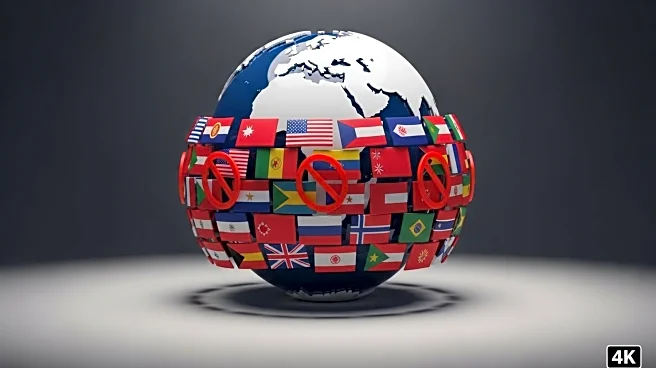What's Happening?
President Trump's efforts to impose higher tariffs and reverse historical trade policies are facing global rejection. While the U.S. aims to limit imports and protect domestic manufacturers, other nations are not retaliating with similar measures. The World Trade Organization reports that fears of a global trade war have not materialized, as other countries recognize the potential harm of increased tariffs. Despite Trump's claims of creating a new global trading order, the U.S. is increasingly isolated in its protectionist approach.
Why It's Important?
The rejection of President Trump's trade policies by other nations highlights the challenges of unilateral protectionism in a globalized economy. The lack of international support for higher tariffs underscores the importance of collaborative trade agreements and the potential negative impact on U.S. industries. American manufacturers face increased costs for imported materials, affecting competitiveness and employment. The situation may lead to economic shifts and necessitate a reevaluation of trade strategies to align with global standards.
Beyond the Headlines
The broader implications of Trump's trade policies include potential shifts in international economic alliances and the role of the U.S. in global trade leadership. The isolation of the U.S. in its approach may affect diplomatic relations and influence future trade negotiations. The situation raises questions about the balance between national economic interests and global cooperation, highlighting the complexities of modern trade dynamics.










